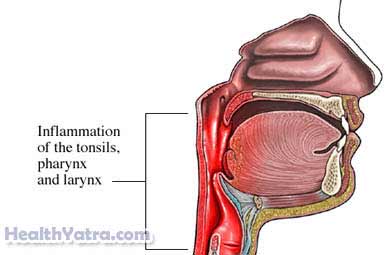Definition
The common cold is an infection that can irritate your nose and throat.
Causes
The common cold is caused by a virus. There are over 200 different viruses that can cause a cold.
Risk Factors
Factors that increase your chance of a cold include:
- Being near someone who has a cold
- Touching your nose, mouth, or eyes with contaminated fingers
- Decreased resistance which can be caused by:
- Smoking or being near cigarette smoke
- Stress
Symptoms
Symptoms can include:
- Sore or scratchy throat
- Stuffy nose (hard to breathe through your nose)
- Runny nose
- Sneezing
- Itchy, stuffed sensation in the ears
- Watery eyes
- Cough
- Headache
- Aches and pains
- Low energy
- Low-grade fever
Diagnosis
The diagnosis is most often based on your symptoms.
Treatment
A cold usually lasts 10 days or longer. There are no cures for a cold. But there are treatments that can relieve your symptoms, including:
Home Care
To make you more comfortable:
- Stay hydrated. Drink lots of fluids. Warm beverages, like tea, and chicken soup are soothing. They may also help decrease congestion.
- Use a humidifier. A cool-mist humidifier will keep your nasal passages moist. Humidifiers may also loosen congestion. Be sure to clean the humidifier every day.
- Try nasal flushing with a neti-pot or saline spray. This can help loosen mucus. You can buy these items at most health food stores and pharmacies
- Gargle with warm salt water. It can help soothe a sore throat.
Over-the-Counter Medications
To relive aches, pains, and fever consider:
- Acetaminophen (Tylenol)
- Ibuprofen (Motrin)
Note: Aspirin is not recommended for children or teens with a current or recent viral infection. This is because of the risk of Reye’s syndrome. Ask your doctor which other medicines are safe for your child.
Cough and cold medications include:
- Decongestants
- Expectorants
- Antihistamines
- Antitussives (cough suppressants)
Note: Do not use cough and cold medicines in children younger than 4 years of age. Rare but serious side effects have been reported.
Decongestant pills or nasal sprays can shrink nasal passages. They also decrease mucus production. Nasal sprays should only be used for 2-3 days. Longer use can lead to increased congestion when you stop using the product.
Other Products
- Throat lozenges—every couple of hours to help relieve sore throat and cough.
- Vapor rub—a topical ointment that contains camphor, menthol, and eucalyptus oils. Vapor rub can be applied to the neck and chest. It may help to relieve nighttime symptoms in children older than two years.
Alternative Treatments
Many people use alternative treatments to relieve their cold symptoms. Some of the more popular choices include:
- Vitamin C—Taking extra vitamin C at the start of a cold has not been shown to be of any benefit. Taking 1,000 mg (milligrams) daily throughout the cold season may help reduce symptoms or shorten how long the cold lasts.
- Zinc lozenges—People who take zinc lozenges at the start of a cold may be able to reduce symptoms. It may also shorten the length of the cold.
- Echinacea—Echinacea might help people to recover faster from a cold. But, there is little evidence that it can prevent colds if taken in advance.
- Honey—While honey has not been shown to affect the severity or length of a common cold, it may improve nighttime cough and sleep disruption in children. Do not give honey to infants younger than 12 months because of the risk of infant botulism.
Other herb preparations include:
- Pelargonium sidoides—This herb may improve symptoms and speed recovery. It is the main ingredient in products like Umcka ColdCare and Zucol.
- Andrographis paniculata—This herb may also improve symptoms and speed recovery. It is found in products like KalmCold and Kan Jang tablets.
Note: Some herbal treatments may not be pure. Many can also interact with prescription medicines and OTC products. Talk to your doctor if you are thinking of using herbs to treat a cold.
Prevention
The most important way to keep from getting or spreading a cold is by washing your hands. Wash your hands well and often. Other ways to keep from getting a cold:
- Keep your hands away from your nose, mouth, and eyes.
- Stay away from people who have a cold.
- If you smoke, stop or cut down on smoking.
- Ask your doctor if taking certain supplements may be right for you.
- Zinc may reduce your chance of getting a cold.
- Vitamin C may slightly reduce your chances of getting a cold

